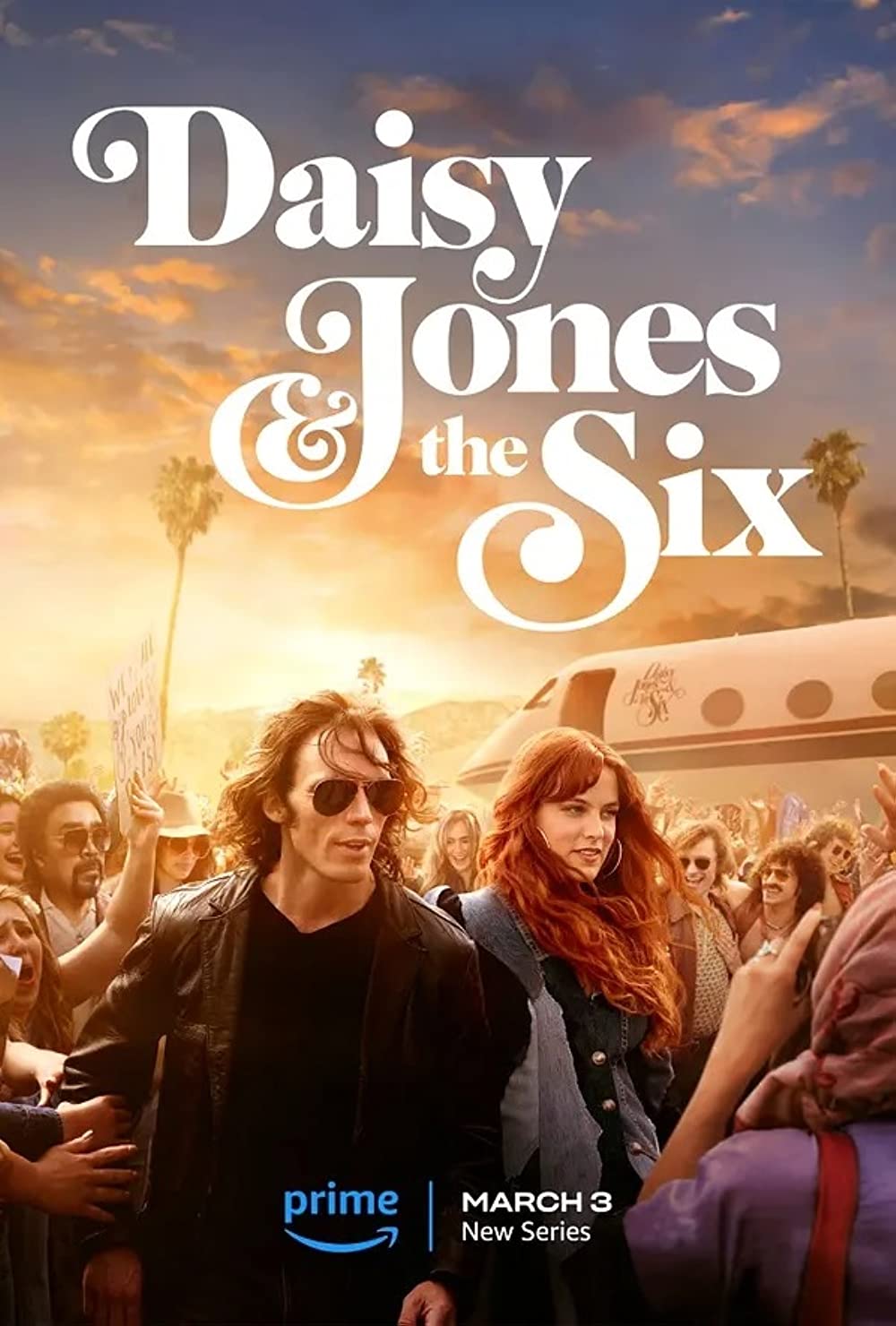
“Daisy Jones & The Six,” released on March 3, brings a bawdy, down-and-dirty look into the 1970s era of rock-and-roll. Based on the best-selling novel of the same name by Taylor Jenkins Reid, the TV series follows the fiery rise of Daisy Jones & The Six, a fictional band who disbanded for unknown reasons at the peak of their fame. Throughout the 10 episode season, themes of betrayal, addiction and artistic maturity are showcased at the forefront of the melodrama and relationships among the members of the band.
Riley Keough and Sam Claflin play Daisy Jones and Billy Dunne, the two main characters and lead singers of “Daisy Jones & the Six,” whose feuds and complicated feelings for each other serve as the main plot line throughout the series. Both Keough and Claflin rise to the occasion with their acting talents and chemistry, going above and beyond to create unique, genuine personalities to their character. The two manage to overcome a mostly unoriginal script, pushing back the blatant banalities to bring out the show’s deeper themes.
While “Daisy Jones & the Six” certainly prove Keough and Claflin’s acting chops, perhaps even more show stopping are their musical performances throughout the show. Despite their limited musical experience, Keough and Claflin are able to stun viewers with their voices, creating beautiful harmonies throughout the show and successfully producing a soundtrack authentic to the 70s.
However, the acting and music itself aren’t enough to save the show. The series is centered around the effects of childhood trauma, which are portrayed through numerous scenes of drug and alcohol abuse. Throughout the show, Daisy and Billy’s insecurities and identity crises are repeatedly blamed on their parents. Yet, the only evidence we have of their tragic backstories are superficially skimmed over — the show casually tosses sexual assault into Daisy’s past, only for it to never be discussed again, and the effects of Billy’s absent father throughout his childhood are barely mentioned, leaving no chance for the audience to develop any feelings of empathy for the characters. The results are depressingly one-dimensional characters, whose actions seem more immature than a result of their trauma.
In return, the series relies heavily on hackneyed Hollywood clichés, attempting to make up for its lack of depth with, as Billy puts it, the “same old rock ‘n’ roll story. The drinking, the drugs, the loneliness.” A claustrophobic love triangle centered around Daisy, Billy and Billy’s wife, Camila Alvarez (played by Camila Morrone), is the ultimate reason behind the band’s downfall: Daisy’s artistic inspiration, which is constantly portrayed as the band’s driving force and the key behind their success, is really just comprised of jealousy and romantic pining for Billy; the show’s secondary romance between Billy’s brother, Graham, and the band’s keyboardist, Karen, ends in a simplistic choice between a domestic life or personal ambition.
The world-building itself is unimpressive; although the costume designers and makeup artists did a wonderful job recreating the hippie outfits, smokey eyeshadow and sideburns of the ‘70s, the set is limited to apartment and mid-century home interiors, and most of the outdoor shots focus on the actors’ faces, leaving out many of the actual background and environments. Especially when compared to shows such as “Stranger Things,” famed for its attention to detail and almost perfect depiction of the 1980s, “Daisy Jones & the Six” falls short.
Perhaps the show’s greatest strength is its unique format, presented in a pseudo-documentary style. Through individual interviews with each member of the band decades after their infamous breakup, the audience is drawn into the foreshadowing created by the split-timeline setup, giving them an inside peek and a mounting suspense as to what will happen next.
For the most part, “Daisy Jones & the Six” falls short of expectations. While certain scenes are tear-rendering and beautifully produced, the characters and plot are surface-level and flimsy, with missed opportunities to delve deeper into topics of addiction, infidelity and emotional maturity, all in all earning the show 2 out of 5 stars.



